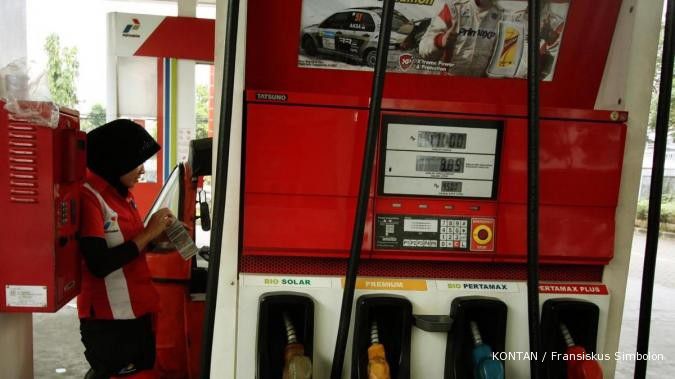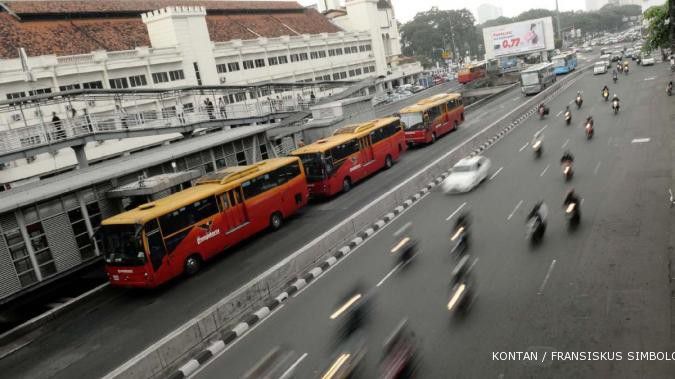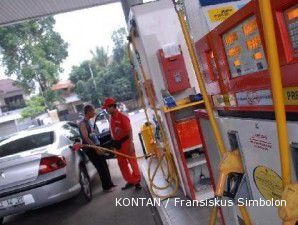JAKARTA. The first hearing on the plan to raise fuel prices began on Tuesday with the government proposing two policy scenarios to avoid a ballooning state budget amid soaring crude oil prices.
Addressing members of the House of Representatives Commission VII, Energy and Mineral Resources Minister Jero Wacik saidJero Wacik said the two options were either to raise subsidized fuel prices by Rp 1,500 (16 US cents) a liter or limit the value of subsidies to Rp 2,000 a liter.
To lessen the impact of a fuel-price hike on purchasing power, Jero said the government would implement four types of compensation programs: direct cash assistance for the poor, special subsidies for public transportation, a bigger budget allocation for the rice-for-the poor program and education subsidies for low-income families.
Jero said the subsidies for public transportation could be in the form of transportation coupons for students and subsidies for processing vehicle registration documents for public transportation operators.
Coordinating Economic Minister Hatta Rajasa said the government would also try to reduce annual government spending by Rp 22 trillion.
“We are going to cut back on nonessential spending, such as office expansions, cars and working trips, so that we can make sufficient savings in our budget,” he said.
Opposition to the government plan to raise fuel prices is building up at the House, with some lawmakers alleging a hidden political agenda behind the programs to compensate for the fuel-price hikes.
“I am afraid that the aid refers to direct cash assistance, which was used as a tool to win the previous presidential election,” People’s Conscience Party (Hanura) lawmaker Akbar Faisal said.
He insisted that any such policies should be carefully scrutinized in the lead-up to the 2014 legislative and presidential elections because the ruling party might abuse their power for political ends.
Totok Daryanto, of the National Mandate Party (PAN), said that he was not sure that the increase in fuel prices would reduce the state budget as proposed by the government.
“The government must make savings in other sectors to reduce the state budget, instead of hiking fuel prices,” he said.
The current state budget encompasses Rp 965 trillion in government spending, of which Rp 123.6 trillion is allocated for fuel subsidies, including premium gasoline, diesel, kerosene and 3-kilogram canisters of liquefied petroleum gas (LPG).
An energy expert from the University of Indonesia, Kurtubi, said that if the government opted to raise the oil-based fuel prices by Rp 1,500 per liter, then the state could save around Rp 60 trillion. As for having a fixed subsidy of Rp 2,000 per liter, he said such a policy was illogical and could pose greater inflation risks.
“I believe it is very important for the government to assist the pubic transportation sector to maintain their fares. Without sufficient government support of public transportation, inflation could rise by 2.5 percent.” (Hans David Tampubolon and Margareth S. Aritonang/The Jakarta Post)
Fuel price hike, two options
February 29, 2012, 11.06 AM
/2012/02/29/340052982.jpg)
ILUSTRASI. Burnley vs Arsenal di Liga Inggris: Misi balas dendam The Gunners. REUTERS/Eddie Keogh EDITORIAL USE ONLY.
Reporter: Edy Can
| Editor: Edy Can
Latest News
-
February 24, 2026, 03.38 PM
Eni to Reach Final Investment Decision for Indonesia Gas Projects Next Month
-
February 24, 2026, 01.00 PM
Asia Stocks Try to Steady after Wall Street Selloff Sims Mood
-
February 23, 2026, 04.50 PM
Wall Street Futures and Dollar Slide on Trump Tariff Tumult
-
February 23, 2026, 02.17 PM
Indonesia's Government Spending Jumps 26% in January 2026
-
February 23, 2026, 01.47 PM
Indonesia's Government Spending Jumps 26% in January
-
February 21, 2026, 06.00 AM
Indonesia's Pertamina to Maintain Bidding Process for US Energy Imports
-
February 20, 2026, 01.23 PM
Indonesia Secures 19% Tariff Deal with US, Palm Oil and Other Commodities Exempt
-
February 20, 2026, 08.33 AM
Indonesia, US Sign Agreement on Reciprocal Trade, Indonesian Ministry Says
-
February 19, 2026, 08.12 AM
Indonesia, Freeport Units Sign MoU to Extend Mining Permit beyond 2041












